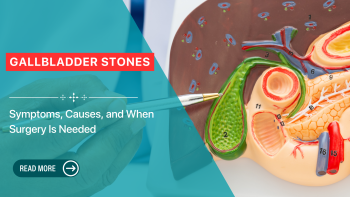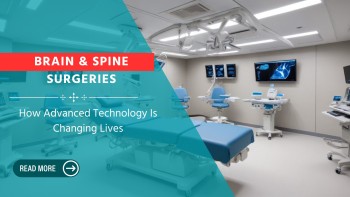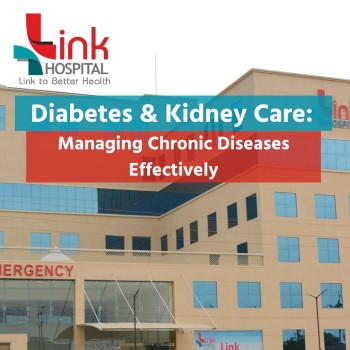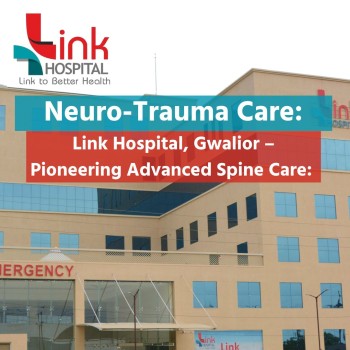Shoulder
dislocation is a common yet painful injury that
requires prompt medical attention. Understanding the intricacies of this
condition can help in quick identification and effective treatment. This guide
provides comprehensive information on shoulder dislocation and highlights the
exceptional orthopaedic care available at Link Hospital in Gwalior, renowned
for its state-of-the-art facilities and expert medical team.
What is Shoulder
Dislocation?
Shoulder dislocation occurs when the
ball(head) of the upper arm bone (humerus) is forced out of the shoulder socket
(glenoid). The shoulder joint is highly flexible, allowing for a wide range of
motion, but this also makes it susceptible to dislocation. It can happen due to
a fall, a direct blow, or extreme rotation of the shoulder joint.
Types of Shoulder
Dislocation
- Anterior Dislocation: The most common type, where the humerus moves forward out of the
socket.
- Posterior Dislocation: Less
common, where the humerus is displaced backward.
- Inferior Dislocation: Rare, where the humerus is forced downward out of the socket.
Causes of Shoulder
Dislocation
●
Trauma: A sudden impact or fall can dislocate
the shoulder.
●
Sports Injuries: Contact sports or activities
involving repetitive shoulder motion increase the risk.
●
Accidents: Car accidents or other high-impact
events.
●
Genetic Factors: Some people have naturally
loose joints (hypermobility), making them more prone to dislocations.
Symptoms of Shoulder
Dislocation
●
Severe Pain: Immediate and intense pain in the
shoulder and upper arm.
●
Visible Deformity: The shoulder may appear
visibly out of place.
●
Swelling and Bruising: Around the shoulder
joint.
●
Limited Mobility: Inability to move the
shoulder.
● Numbness or Weakness: In the arm and hand due to nerve involvement.
Diagnosis
A thorough physical examination by an
orthopaedic specialist is essential. The following diagnostic tests may be used:
●
X-rays: To confirm the dislocation and check
for any fractures.
● MRI or CT Scan: To assess soft tissue damage around the shoulder joint.
Treatment Options
Closed Reduction: The doctor manoeuvres the arm back into the socket, typically
done under sedation or anaesthesia to minimize pain.
Immobilization: Using a
sling or shoulder brace to keep the shoulder in place while it heals.
Medication: Pain relievers
and anti-inflammatory drugs to manage pain and swelling.
Physical Therapy: To
restore strength and flexibility to the shoulder joint.
Surgery: In severe or recurrent cases, surgery may be required to repair torn ligaments or reposition bones.
Recovery and
Rehabilitation
Recovery time varies depending on the
severity of the dislocation and the treatment method. Generally, it involves:
●
Rest and Immobilization: For a few weeks to
allow initial healing.
●
Gradual Exercise: Supervised physical therapy
to regain full range of motion and strength.
●
Follow-up Appointments: Regular check-ups with
the orthopaedic specialist to monitor progress.
Preventing Shoulder
Dislocations
●
Strengthening Exercises: Focus on shoulder
muscles to provide better joint support.
●
Proper Techniques: Use correct form and
equipment during sports and physical activities.
●
Protective Gear: Wear appropriate gear during
high-risk activities to reduce impact.
Why Choose Link Hospital,
Gwalior?
Link Hospital in Gwalior stands out for
its cutting-edge orthopaedic care and comprehensive treatment options for
shoulder dislocations. Here's why:
●
Expert Orthopedic Team: Highly skilled and
experienced orthopaedic surgeons.
●
Advanced Facilities: Equipped with the latest
medical technology and diagnostic tools.
●
Personalized Care: Tailored treatment plans to
meet individual patient needs.
●
Multidisciplinary Approach: Collaboration
between orthopaedic specialists, physiotherapists, and pain management experts.
●
Successful Outcomes: High success rates in
shoulder dislocation treatments and surgeries.
Conclusion
Shoulder dislocation is a serious injury
that requires immediate medical attention and expert care. At Link Hospital in Gwalior, you can expect top-notch orthopaedic treatment, ensuring a swift and
successful recovery. Don't compromise your health—trust the best orthopaedic
care at Link Hospital.
For more information or to schedule a consultation, visit Link Hospital's website or contact our orthopaedic department directly.











